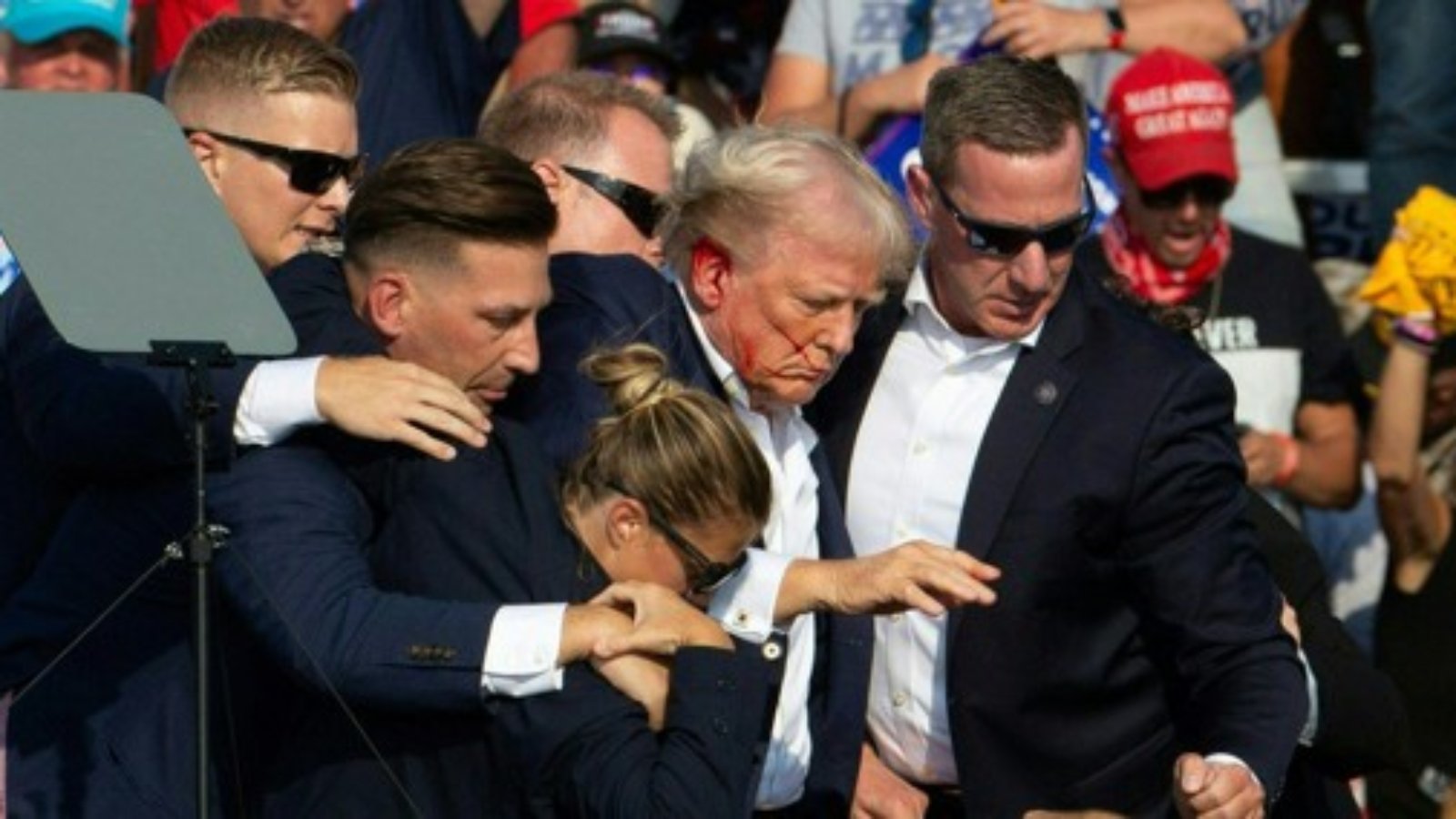The U.S. Secret Service must reboot its leadership and shake up its operations to reinvigorate a complacent workforce, a panel President Biden commissioned in the wake of a nearly successful assassination attempt on former President Trump earlier this year found, suggesting the agency’s issues ran far deeper than simply insufficient staff.
The investigators found issues with the decision making at Trump’s July rally in Butler, Pa., during which Thomas Matthew Crooks fired eight shots from a nearby roof that killed one rally attendee and injured three people, including Trump, as well as problems much more deeply rooted within Secret Service. The agency should reconfigure its organization, narrow its focus and take a slew of steps to help its employees problem solve more effectively, the group said.
Homeland Security Department Secretary Alejandro Mayorkas said he was grateful for the report and promised to “fully consider” it when implementing changes to reform Secret Service.
“These actions will be responsive not only to the security failures that led to the July 13, 2024 assassination attempt but, importantly, to what the Independent Review Panel describes as systemic and foundational issues that underlie those failures,” Mayorkas said.
While many inside and outside Secret Service have raised concerns about inadequate resources and staffing, the panelists did not identify workforce issues as driving its recent failures. Instead, their report focused primarily on operational decision making, leadership failures and longstanding structural issues within the agency. They suggested issues existed within the workforce, however, and some of those could be addressed with more staffing.
If conversations focused solely on budget and resources, they cautioned, the lessons from the Butler event would not be learned.
Within the workforce, the panel found, the notion that USSS must “do more with less” is pervasive. Such an outlook creates “inevitable corrosive effects on protective decision-making over time,” the group said. Rather than focusing solely on how to ensure they meet their “zero-fail” mission, employees are looking for ways to cut corners.
A form on which USSS personnel made their staffing request directed employees to “minimize required manpower,” for example, which the panel said exacerbated the perception that agents must do more with less. The thinking has led to “corrosive cultural attitudes” within the USSS workforce.
Adding staff would help diminish that perception, the panel said, and the downstream effects it creates. Secret Service is currently looking for ways to add staff and officials told the panel it will engage in more hiring if its budget increases. The panel warned the agency must deploy new staff thoughtfully while also allocating existing employees more rationally or it will not realize the benefits of its resources. It also suggested USSS utilize resources elsewhere within DHS, such as Homeland Security Investigations personnel and Transportation Security Administration agents.
The panel was comprised of Mark Filip, a former George W. Bush administration Justice Department official; David Mitchell, a former police superintendent in Maryland and Homeland Security Department official; Janet Napolitano, who led DHS under President Obama; and Frances Fragon Townsend, an advisor under President Bush.
It made clear a hiring surge would not directly mitigate the issues that caused the failures in Butler. Similar to a bipartisan report issued last month by the Senate Homeland Security and Governmental Affairs Committee, the panel cited USSS for not clearly identifying who was in charge in Butler, not adequately ensuring communication and coordination between the agency and other law enforcement entities and failing to deploy agents with requisite experience. The group also flagged Secret Service personnel for demonstrating a “troubling lack of critical thinking.”
Examples included not recognizing the building Crooks shot from as a concern, refusing to stray from normal procedures regarding a former president even though Trump had effectively secured the Republican nomination (and, as the panel said, is someone who “generates strong emotions in many people”), failing to streamline communications and being unable to properly recognize Crooks as a threat.
Since the event, the panelists found, Secret Service personnel still have not fully processed or come to understand their shortcomings.
“The panel has observed that many of the Secret Service personnel involved in the events of July 13 appear to have done little in the way of self-reflection in terms of identifying areas of missteps, omissions or opportunities for improvement,” it said.
Many of the decisions USSS personnel made in Butler were “hard to understand,” the panel said, such as declining to include the building from which Crooks took his shots in the inner perimeter within the agency’s direct jurisdiction. Even after making such a decision, it added, the agency could and should have secured the building using existing personnel.
The lack of critical thinking could have derived from several issues, the investigators said, including complacency, burnout, inadequate training, resource pressure and incompetence.
“One of the most fundamental challenges facing the Secret Service,” the panel said, “is that new leadership will need to inspire agents, regardless of fatigue or claimed burnout, to aspire to be elite and flawless.”
The panel also faulted USSS for failing to conduct after-action analyses of events, random audits of its performance or various exercises to improve performance. The agency is overly protective and insular with regard to its practices, the group said.
Secret Service should also invest more heavily and regularly in training, noting the agency lacks facilities dedicated to training and lags behind other federal law enforcement in training operations. The panel recommended creating a leadership training center and making additional investments.
The former federal officials said going forward USSS should integrate its communications, ensure an on-site leader briefs the head of protectee’s detail upon that person’s arrival on site, procure and deploy overhead technology at outdoor events and establish a clearer chain of command at protected events.
It also made more structural recommendations, including reorganizing the agency around its core mission of protecting important figures and installing new leadership from outside the agency. USSS should “consider what current responsibilities the Service needs to shed or discharge so that it can provide its protective mission with all resources required to fulfill that responsibility,” the panel said, adding other investigative missions “may materially distract” from its core functions.
Secret Service should also establish a continuous auditing center and take a risk-based approach to its security plans, rather than structuring them strictly based on the title of the protectee.
The panel urged the agency to “faithfully and expeditiously” implement its recommendations.
USSS has stressed that it quickly took action to ramp up its security efforts through the election. While it weighs longer-term changes, Mayorkas expressed confidence the agency is up to the task in the immediate future.
“I have the utmost confidence in the men and women of the U.S. Secret Service,” the secretary said. “We are operating in a heightened and dynamic threat environment, and it is their talent, unwavering dedication and tireless service that ensures the safety and security of their protectees and our nation.”
Last month, a second would-be assassin was located by Secret Service on a golf course where Trump was playing. Prosecutors are seeking to charge Ryan Routh, the alleged gunman, of an assassination attempt on a presidential candidate.
While the Secret Service has not cited insufficient resources as a cause for its failures, a top official recently said it has “long been the case” that his agency is stretched too thin. The stopgap funding currently funding the government provided USSS with a $231 million funding surge through Dec. 20.



Add a Comment